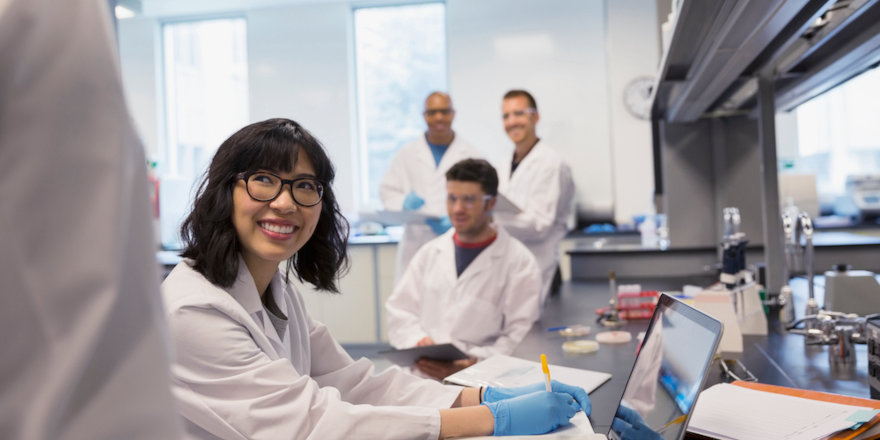Going Beyond the Textbook with Experiential Learning
How Mount Royal University's experience-based approach prepares students like you for the future.

Providing students with a wide range of experiential and work-integrated learning experiences is a key part of how Mount Royal University (MRU) prepares students for their future careers or graduate studies. With more than 25 different bachelor degree majors at MRU that include workplace opportunities, students can start gaining experience before graduation.
But what exactly does experiential and work-integrated learning mean, and why does it matter when it comes to university programs?
Experience-based learning
Experiential and work-integrated learning includes fieldwork, practicums, laboratory work, simulations, internships, co-operative education — and the list goes on. It provides education through experience, allows students to engage with the learning process in meaningful ways and can be helpful in bridging the gap between theory and application.
In MRU's Bachelor of Child Studies program, students are given opportunities to work with organizations that serve children, youth and families. These hands-on experiences help them gain a deeper understanding of concepts presented in the classroom by bringing them to life in a workplace environment.
Practice what you learn
Practice doesn't always make perfect, but it sure can help you learn. Experiential and work-integrated learning allows for trial and error within a safe educational space and gives students access to real-time feedback from those with industry knowledge.
For example, students in MRU's Bachelor of Arts - Criminal Justice program are given opportunities to learn in a supportive environment through court visits, mock trials and a work practicum. This experiential trifecta means they get to watch and learn before putting their own skills to the test, resulting in a well-rounded understanding of materials and processes.
Be prepared for graduation and beyond
The best way to prepare for your future career or graduate studies is by gaining experience directly related to your field. Engaging with the industry is a key part of MRU's Bachelor of Interior Design program which includes a 450-hour paid internship. Students are able to apply their learning directly to their work, make professional connections and add to their resumés, ensuring they are confident and ready for whatever comes after graduation.
Mount Royal's Career Services are also available to help connect students with employers, jobs and career opportunities and can assist with job search preparations, such as professional coaching and resumé, cover letter or portfolio critiques.
Instead of just sticking to a textbook, experiential and work-integrated opportunities help you put your learning into practice, connect theories to the world beyond the classroom and gain important industry experience. While these opportunities can take many different forms, they all share an important theme: helping you graduate prepared for whatever your future career or graduate studies may hold.
Check out programs at MRU

